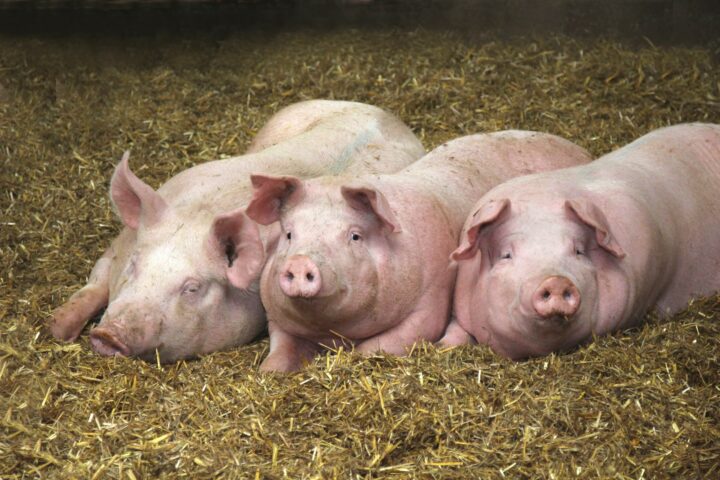
Openness to gene editing if it offers concrete benefits
The public is very open to the use of innovative technologies in agriculture. This also applies to targeted plant breeding using modern methods like gene editing. If such methods make crops resistant to diseases such as fire blight and downy mildew, an overwhelming majority favors their use. This also holds true if targeted breeding is able to reduce the use of crop protection products or protect regional production. These are the results of a representative survey that was conducted by gfs.bern on behalf of the information platform swiss-food.ch.
Tuesday, September 21, 2021
Fast fact:
- A survey by gfs.bern shows that the Swiss are open to new technologies in agriculture – if they are aware of the concrete benefits.
- Over 80 percent of respondents viewed that genome editing useful when used to make crops resistant to plant diseases.
- The survey counters the frequently voiced argument that consumers reject genome editing outright.
The Swiss parliament in Bern is poised to extend the duration of the existing moratorium on genetic engineering, and to even include in it the Nobel Prize-winning CRISPR/Cas9 “genetic scissors.” It is clear from the survey, however, that a large majority of people favor the use of targeted breeding in agriculture, provided that gene editing produces concrete benefits.
The largest share of respondents – over 80 percent – express support for this approach if gene editing makes it possible to breed disease-resistant crops. There is also widespread approval if it reduces the need to use pesticides.
- 82 percent think that gene editing is beneficial if it can make traditional apple varieties resistant to fire blight.
- 81 percent regard it as beneficial if it makes wheat less susceptible to fungus, so that crop protection products are needed less frequently.
People also support the use of gene-edited plants in developing countries, as well as for the protection of regional production, to protect the climate, to prevent food waste, and to lower prices for consumers.
- 80 percent view it favorably if it allows small farmers in developing countries to use fewer pesticides.
- 79 percent regard it as beneficial if it provides greater protection for regional agriculture.
- 76 percent regard it as beneficial if plants bred using “genetic scissors” are able to adapt more quickly to climate change.
- 75 percent approve of breeding grains with shorter stems, which are less susceptible to bending during a storm.
- 73 percent approve of enriching staple foods in developing countries with important vitamins and micronutrients to combat malnutrition and its consequences, such as blindness.
- 70 percent approve of targeted breeding if it extends the shelf life of foods, thereby reducing food waste.
- 69 percent approve of gene-edited plants that make regional fruits and vegetables more affordable.
Overall, the survey clearly contradicts the blanket assertion that “consumers oppose gene editing.” In the view of swiss-food, the survey confirms that clear communication about the benefits of new technologies promotes acceptance. The public is very receptive to these technologies if they can eliminate concrete risks to regional production, the environment or health.
These are the findings of a representative survey conducted by gfs.bern on behalf of swiss-food. It was conducted at the end of July 2021. The survey included 1,010 people from across Switzerland. The results also show that 78 percent of the Swiss are very satisfied with agriculture in their country. At the same time, however, a large majority recognize that agricultural production in Switzerland faces significant risks. This also reflects their experience with the wet summer of 2021 and major damage to crops.
- 90 percent of Swiss voters recognize that plant production in Switzerland is vulnerable to a variety of risks, including climate change, pests and plant diseases.
- 70 percent understand the need to use pesticides.
Two-thirds of Swiss voters feel that Swiss agriculture is open to modern technologies. The respondents were also presented with the benefits of various modern technologies that are (or could be) used in agriculture. They could then indicate how much they agreed with the use of these technologies in Swiss agriculture. Three types of technologies are viewed particularly favorably:
Megatrend: Digitalisation
1. Digitalization of agriculture
86 percent approve of technologies focused on data collection, such as the use of drones to monitor pest infestations. 72 percent favor data-driven crop management that monitors the entire production chain up to the consumer. 63 percent have a favorable view of the use of 5G technology to transmit image data to robots used to control weeds. A majority (60 percent) also approve of the use of autonomous agricultural machines and tractors.
2. Targeted breeding and targeted crop protection
79 percent favor the targeted breeding of resistant plants. And 69 percent agree with the use of plant protection products that are very narrowly targeted.
3. Modern forms of agriculture
The majority also favors vertical farming (67 percent) and hydroponic production (52 percent).
At the beginning of the survey, respondents were asked what they thought in general of gene editing – that is, targeted breeding, for example, using the CRISPR/Cas9 “genetic scissors.” Many were initially at a loss, but were able to answer the question after being given a brief explanation. 65 percent consider this technology to be generally beneficial. A plurality express opposition to the Federal Council’s proposal to extend the moratorium on genetic engineering to include gene editing.
Related articles

Why consumers accept gene-edited foods on their plates
Acceptance of gene-edited foods increases when their tangible benefits are clear to consumers. Studies show that visible advantages for health, the environment or food security are key to public support.

What’s Really in Your Shopping Basket
Genetic engineering in our shopping basket? Yes – and much more often than we think. Whether it’s pasta, bread or vegetables: many of the everyday products we consume come from mutation breeding, which involves altering the genome and is considered safe. It’s high time to debunk the common myths.

Genomic breeding methods are not given a chance to prove themselves
Modern genomic breeding methods are legally classified as genetic engineering – and are therefore still effectively blocked. Yet we have been eating genetically modified plants for decades, just under the label of “classical mutagenesis.” The new, more precise techniques are regulated more strictly than the old ones, even though they are considered safer from a scientific perspective. A contradiction that urgently needs to be corrected. The EU is setting a good example.

No Pig Business: Why Testicle-Free Boars Are a Clear Win for Animal Welfare
New breeding methods are opening up new possibilities in both plant and animal breeding. They allow targeted genetic changes that can make animals more resilient, adaptable, and healthier.

